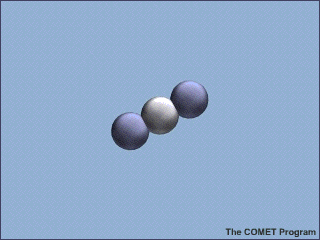Greenhouse gases are gases that absorb energy emitted from the earth and radiate it back into the atmosphere. If there are too many greenhouse gases, the earth could become too warm. If greenhouse gases dramatically decrease, the earth may be too cool for human activities, such as farming, planting, and harvesting, to occur.
Why do I care? A certain amount of greenhouse gases is essential to life on earth. However, human activities are affecting the levels of these gases in the atmosphere, which are in turn affecting the climate we have adapted to.
Greenhouse gases are the gases that absorb long-wave energy and emit it back into our atmosphere. They are responsible for keeping the earth warm enough to live on. Most of these gases are present in the atmosphere naturally. However, anthropogenic (manmade) processes are dramatically increasing the concentration of these gases. This is one of the main reasons we think our earth is experiencing warming and climate changes.
Concentrations of greenhouse gases are commonly given in percentages as well as mixing ratios of gases to total air volume, such as ppt, ppb, and ppm. The percentages are the percentage of the atmosphere made up by these gases. Since the percentages are very small, most of the time concentrations are referred to in parts per trillion (ppt), parts per billion (ppb) or parts per million (ppm). This means that for every trillion, billion or million molecules, the number given is the amount of molecules that are composed of that gas per trillion air molecules, etc. For example, as of 2009, our atmosphere currently contains a CO2 concentration of 385ppm; for every million molecules, about 385 of them are carbon dioxid

No comments:
Post a Comment